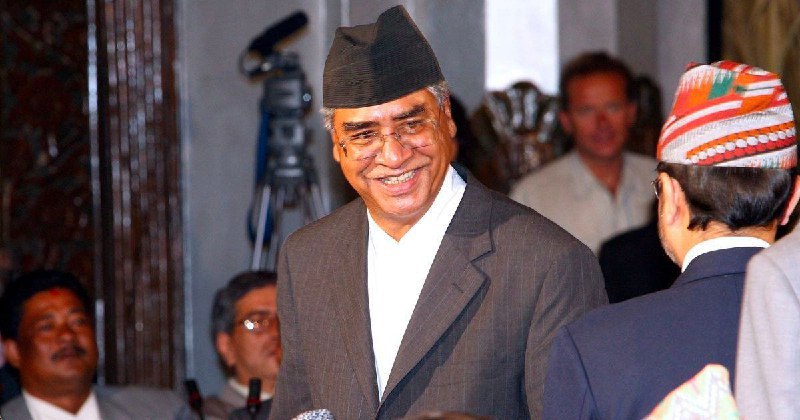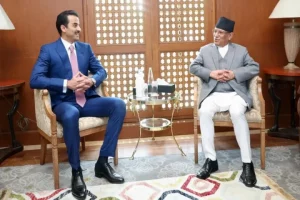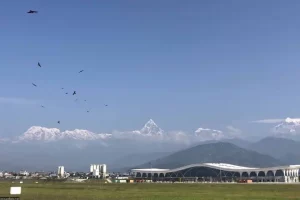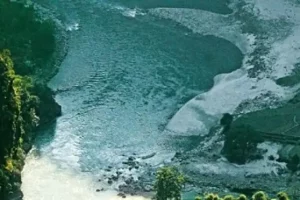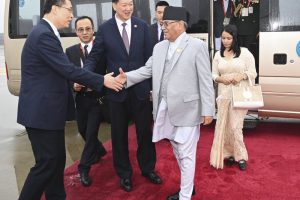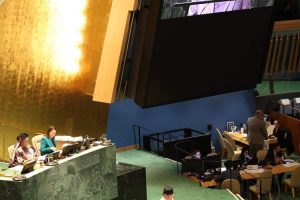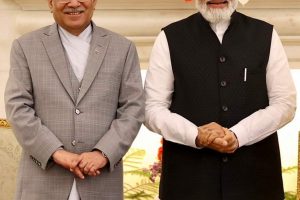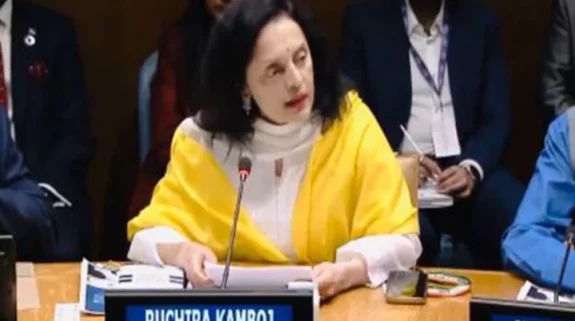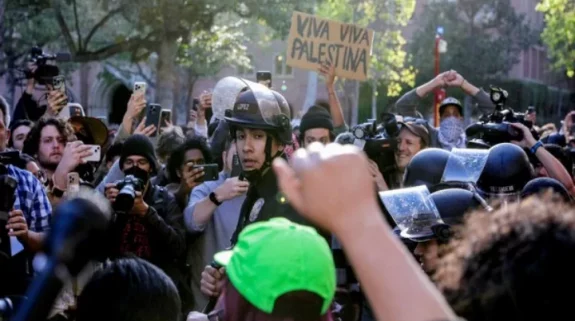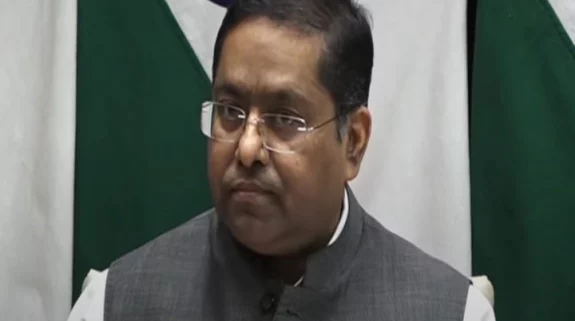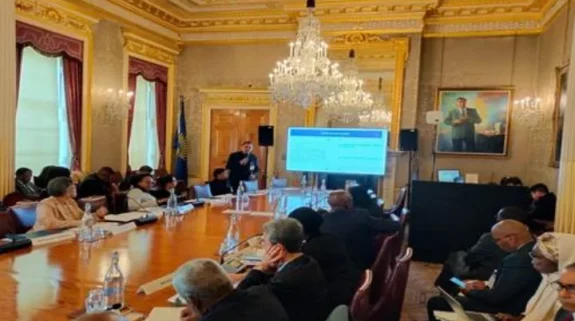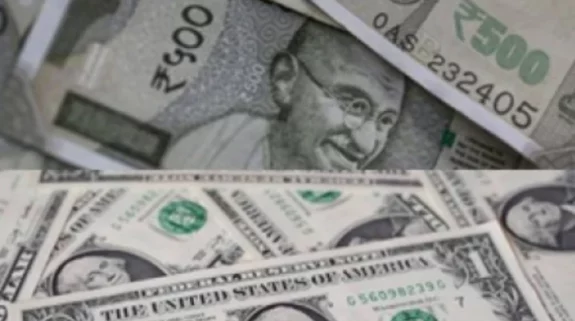The ruling five party alliance in Nepal, led by the Nepali congress has agreed to form a government following recent elections.
“People have given the mandate to the ruling political parties to join hands together for the political stability and economic prosperity of the nation,” read the joint statement that was issued following a meeting of the allies at the residence of Prime Minister Sher Bahadur Deuba this afternoon.
The statement added that the meeting stressed on giving continuity to the existing ruling coalition under the Nepali Congress to ensure political stability and economic prosperity in the country.
Earlier, the Communist Party of Nepal (Maoist Center), a key partner in the Congress-led government in Nepal, had reiterated that it would continue to support the five-party ruling alliance.
A meeting of the CPN (Maoist Center)’s office bearers held on Sunday pledged its full support to the Congress-led alliance belying rumors that the party might switch to the rival CPN-UML camp.
“The meeting has decided to extend the party’s firm support to the present Congress-led alliance,” Ramesh Malla, a key aide to Chairman of the CPN (Maoist Center), Pushpa Kamal Dahal alias Prachanda, told India Narrative on Monday morning.
The Maoist party’s decision comes at a time when the partners in the Deuba-led government are about to start the deliberation on the power-sharing in the post-election context.
However, it was as yet not clear who would become Prime Minister in the new government, though the credentials of the incumbent Premier Sher Bahadur Deuba remain strong, as he had led from the front in ensuring victory for the five party alliance in the November polls.
“Even as we (partners in ruling coalition) are agreed to give continuity to the existing alliance, we are yet to finalize power-sharing, above all to decide the prime minister. We will start dialogue on the same, today,” Narayan Kaji Shrestha, a vice president of the CPN (Maoist Center), told India Narrative on Monday, before the meeting began.
This will be the first ever meeting between the ruling coalition after the country held elections to the House of Representatives and provincial assemblies on November 20 in a single phase. This was the second time the country held general elections after it adopted a republican constitution in 2015. The first such polls took place in 2017.
Out of 275 members of the House of Representatives, 165 have been elected through direct voting (first-past-the-post) and the remaining 110 elected through proportional representation (PR) category. Similarly, out of 550 members of the provincial assemblies, 330 were elected directly and 220 were elected through the PR system.
Deuba, Prachanda both eyeing for PM
In the behind- the- curtain meetings, both the Nepali Congress and the Maoist party are staking claims for the post of prime minister while the Communist Party of Nepal (Unified Socialist) led by Madhav Kumar Nepal, another coalition partner in the Congress-led alliance, is eyeing for the post of House of Representatives (HoR).
Nepali Congress President and incumbent Prime Minister Deuba is eyeing to return to the power while the Maoist Chairman Prachanda has also shown his intention to reach at the helm of government for a third time.
PM Deuba, Prachanda and Nepal hold talks
| https://t.co/cRR9CVaFxC#Khabarhub #PMDeuba #Prachanda #MadhavNepal #Meeting pic.twitter.com/z3krmt65Lr— Khabarhub English (@Khabarhub_Eng) September 4, 2021
Ruling alliance set to get simple majority
To keep the main opposition the CPN (UML) out of power, the Congress-led alliance should ensure its majority in parliament and efforts are on towards this end, leaders said.
As no single party has won seats (138) needed to form the new government on its own a coalition government is inevitable.
With a hung parliament, the ruling coalition would gain around 140 seats in parliament if it brought the Madhes-centric Janamat Party led by CK Raut and other fringe parties on board. Janamat Party will have at least five seats in parliament.
Prime Minister Deuba recently met CK Raut and discussed the latter’s possibility to join the government under his leadership. Bimalendra Nidhi, a leader of the Nepali Congress, said that Raut was positive towards joining the government under the Congress party.
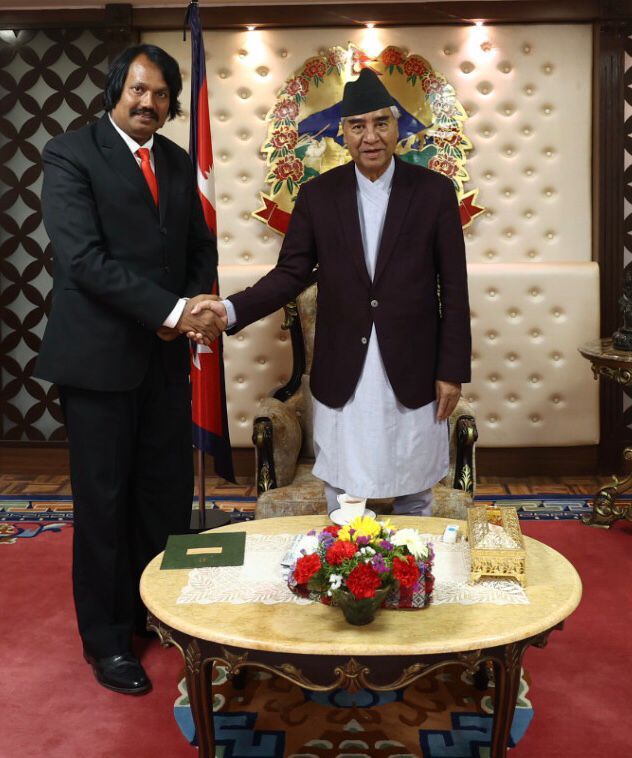
As per the vote counting results from the elections, the Nepali Congress, which heads the current ruling coalition, emerged as the single largest party with 57 seats under the first-past-the-post (FPTP) category for the House of Representatives (HoR), the lower house of parliament. The ongoing vote counting for the proportionate representation (PR) category suggests that NC will gain 32 seats. By combining the two, the NC will have 87 seats in the lower house.
The CPN (Maoist Center), a partner in the present government, is in the third position with 18 seats. The party is expected to garner at least 14 seats under the PR category. Another partner in the government, CPN (Unified Socialist) is in fourth position with 10 seats. However, the party is struggling to achieve the ‘national party status’ by crossing a minimum three percent of the valid votes. In case if the CPN (Unified Socialist) failed to cross the three percent threshold, the party will just have 10 seats in parliament.
Likewise, Madhes-centric Loktantrik Samjbadi Party, which has gained four seats in parliament, is also keen to join the present alliance led by the Congress. The Chitra Bahadur KC-led Rashtriya Janamorcha, which has achieved one seat in parliament through recent elections, is expected to give continuity to the alliance.
Even as the newly-formed Rashtriya Swatantra Party (RSP), Madhes-centric Janata Samajbadi Party, Nagarik Unmukti Party from the far-west region and pro-monarchy Rashtriya Prajatantra Party don’t join the present ruling alliance, it can gain majority in parliament.
UML’s failed attempt
The CPN (UML), the main opposition, has also made overt and covert attempts to form the government under its leadership.
As vote counting results were halfway last week, the CPN (UML) held separate talks with the CPN (Maoist) and the Nepali Congress to form a new government under its leadership. UML Chairman KP Oli telephoned Maoist Chairman Prachanda and Prime Minister Deuba separately. However, both the Congress and Maoists remained non-committal towards Oli’s proposal to form the government in alliance with the UML, according to media reports.
Chairman of Unified Socialist, Madhav Kumar Nepal, ruled out the possibility of left-wing parties forming a new government in the current situation.https://t.co/wA2gHBEaZP#Khabarhub #Unified_Socialist #Government #Nepal
— Khabarhub English (@Khabarhub_Eng) November 30, 2022
Analysts say the coalition between the CPN (Maoist Center) and the CPN (UML) or the CPN (UML) and the Nepali Congress to form the new government seem to be a distant possibility.






